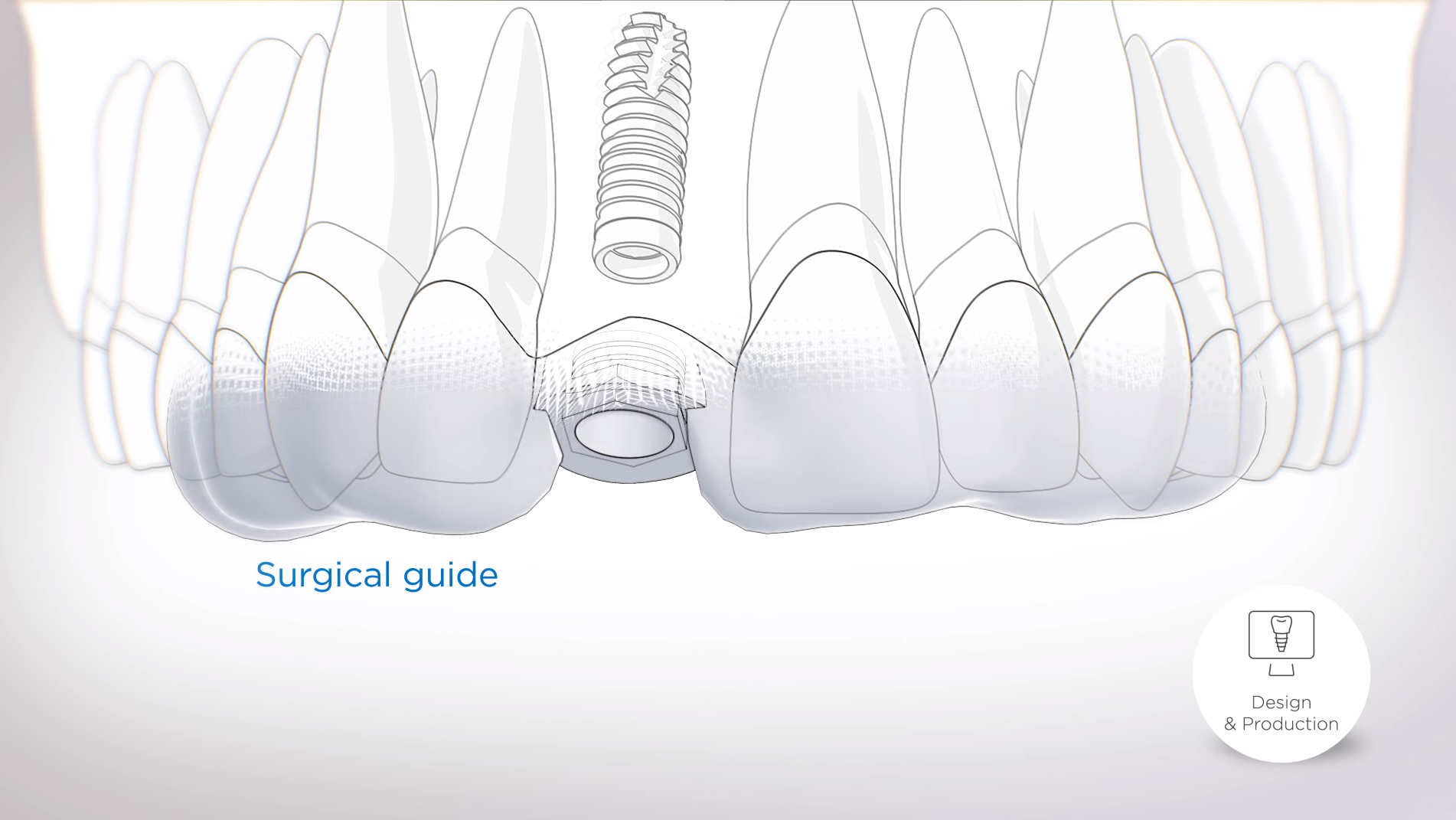WHAT IS A DENTAL IMPLANT?
A dental implant is a grade 5 titanium fixture carefully placed into bone to replace a missing tooth root. Once fusion with the bone occurs, it provides a strong base for a custom-designed crown or bridge of teeth.
OUR DIFFERENCE.
3D PLANNING.
Guided dental implant surgery offers several benefits due to its precise planning and execution. By utilizing advanced imaging technology such as cone beam computed tomography (CBCT) scans and computer-aided design (CAD) software, guided surgery enables dentists to visualize the patient's anatomy in detail before the procedure. This allows for accurate placement of the implant, minimizing the risk of complications, reducing surgery time, and often leading to faster healing and improved outcomes for the patient.
Why Us?
FAQs
-
Dental implants can last for many years, potentially a lifetime, with proper care and maintenance. Studies have shown that the success rate of dental implants is over 95% after 10 years. However, the longevity of dental implants can vary depending on factors such as smoking/tobacco use, procedural techniques, the patient's oral hygiene, and the type of implant used. For example, if the patient has poor oral hygiene, the implant may fail sooner than expected.
-
Generally, dental implants can range from $1143 to $5632 (inluding the implant crown) depending upon the complexity of the case and insurance benefit contributions.
Here's a breakdown:
Complexity of the Procedure: The cost of a dental implant can vary based on factors such as the number of implants needed, the condition of your jawbone, and whether additional procedures such as bone grafting or sinus lifts are required. More complex cases may involve higher costs due to the additional time, materials, and expertise needed. Complexity also includes aesthetic demands.
Location: The cost of dental implants can also vary based on the area of the mouth. Aesthetic demands of the front teeth can pose more nuances and details which can add costs - and example is a custom provisional implant crown to shape and contour the gum tissue.
Insurance Coverage: Many dental insurance plans provide coverage for dental implants, but the extent of coverage can vary widely. Some plans may cover a portion of the cost, while others may cover the entire procedure. It's essential to check with your insurance provider to understand your benefits and any out-of-pocket expenses you may incur.
Additional Costs: In addition to the implant itself, there may be additional costs associated with the procedure, such as consultations, diagnostic tests, sedation or anesthesia, and post-operative care. These costs should be discussed with your dentist or oral surgeon during the consultation process.
Overall, it's essential to consult with a qualified dental professional to receive an accurate estimate for your specific case. Your dentist can assess your oral health, discuss your treatment options, and provide you with a detailed breakdown of the costs involved. Additionally, they can help you navigate your insurance coverage to maximize your benefits and minimize your out-of-pocket expenses.
-
Generally, individuals with good oral health, sufficient jawbone density, and healthy gums are suitable candidates for dental implants. However, a thorough examination by a dentist or oral surgeon is necessary to determine candidacy.
-
The dental implant procedure is typically performed under local anesthesia, ensuring that the patient feels little to no discomfort during the surgery. Some soreness and swelling may occur afterward, but it can usually be managed with over-the-counter pain medication.
-
The duration of the dental implant process varies depending on factors such as the patient's oral health, the need for any preliminary procedures like bone grafting, and the type of restoration being placed. On average, the entire process usually takes 4-9 months to complete the replacement of a single tooth.
-
While dental implants have a high success rate, there are potential risks and complications such as infection, implant failure, nerve damage, or sinus issues. However, these risks are relatively rare and can often be mitigated through proper planning and post-operative care.
-
Yes, dental implants can be used to replace a single missing tooth, multiple missing teeth, or even an entire arch of teeth. Depending on the patient's needs, implants can support individual crowns, bridges, or implant-supported dentures.
-
Coverage for dental implants varies depending on your insurance plan and the reason for the tooth loss. While some dental insurance plans may cover a portion of the cost, others may consider implants to be a cosmetic procedure and offer limited or no coverage. Our office typically researches this as a courtesy to our patients to provide the best estimation possble.
-
Yes, dental implants are designed to closely mimic the appearance and function of natural teeth. Once the restoration is placed on top of the implant, it should blend seamlessly with the surrounding teeth and provide excellent stability and chewing ability.





